Paradox: Now is the time to deal
By Geoffrey Forden, Arms Control Wonk, September 25, 2009
Iran has admitted that it has at least one (and there is no reason to believe that there are not more) secret enrichment facilities. More information will undoubtedly come out in the coming days but we can deal now with the most important issue: how to proceed from here. As President Obama has rightly said today, this is not the first time Iran has hidden nuclear facilities it should rightly declare to the IAEA.
Iran will undoubtedly claim that it has not introduced nuclear material into the centrifuges and therefore did not have the obligation to report it. In fact, when I was in Israel earlier this summer, everyone I spoke to was convinced that such a facility existed but that Iran had not introduced uranium into it. However, there is a lot that can be done to train personnel etc. with enriching other isotopes like xenon or silicon. And training personnel is the important aspect right now. When the history of these secret facilities is known, I suspect that we will discover that they were started during the enrichment “suspension” that ended in 2006. We will also discover, I firmly believe, that the Natanz facility has been used as a training center for workers for those covert facilities. That could explain why there has been a relatively slow start: they were constantly cycling new trainees through with the consequent inefficiencies new workers always introduce. [continued…]
The Iran nuclear revelation
By Marc Lynch, Foreign Policy, September 25, 2009
… despite what I expect to see swarming the media in the next few days — wanna bet that John Bolton or John Bolton-equivalent oped is already in production over at the Washington Times Washington Post (sorry, it’s hard to tell the difference on foreign policy issues sometimes) — I actually think that this public revelation makes war less rather than more likely. The timing of the announcement, immediately following the consultations at the UN and the G-20 and just before the Geneva meetings, makes it seem extremely likely that the Obama administration has been waiting for just the right moment to play this card. Now they have. It strengthens the P5+1 bargaining position ahead of October 1, changes Iranian calculations, and lays the foundations for a more serious kind of engagement. So now let’s see how it changes the game. [continued…]
How to keep Iran in check without war
By Gary Sick, The Daily Beast, September 23, 2009
For the better part of two decades, there have been cries of alarm that the United States must “do something” or else Iran would have an operational nuclear weapon within a few years. If these warnings of a “ticking clock” had been heeded, there would have been ample reason for the United States or Israel to go to war with Iran at almost any time. In fact, there have been as many serious predictions that a war was imminent and unavoidable as there have been false predictions about the timing of an Iranian bomb. Seymour Hersh, writing in the New Yorker beginning in 2006, quoted many sources inside and outside the U.S. government who claimed that the Bush administration was preparing to attack Iran because of its nuclear policies. It now appears that Vice President Cheney, based on his own words in retirement, was in fact pressing for such an attack, but President Bush vetoed it.
In June 2008, former U.S. ambassador to the United Nations John Bolton predicted that Israel “will attack Iran” before January 2009 when the new U.S. president was sworn in, but apparently the Israeli leadership decided otherwise. Just a few weeks ago, retired Air Force general Chuck Wald on National Public Radio outlined a sustained bombing campaign against Iran that would last “weeks or months,” then added, “Now, does anybody in their right mind want to attack Iran? No, not a bit. But sometimes you’ve got to do things you don’t like to do.” From the tone of his voice, the prospect of an attack did not seem to dismay him, and he has gone on to write a series of op-eds pushing the military option.
These statements are admirably clear in recognizing that the end game in any concerted pressure campaign against Iran is war. Secretary of State Hillary Clinton threatened “crippling sanctions” to be imposed on Iran if it failed to cooperate with U.S. diplomatic efforts. That phrase was later echoed by Israeli prime minister Netanyahu during his visit to Germany, and it is expected to be a major focus of the U.S. Congress starting in September. Iran does not have sufficient refinery capacity to meet all its gasoline needs, and the Congress is expected to press for actions that would attempt to curtail or block such imports into Iran. A prohibition of Iranian petroleum imports—most likely restricted to the United States and perhaps some of its European allies since Russia, China and even many of Iran’s allies (think Venezuela) and immediate neighbors (think Iraq) are unwilling to cooperate—can only be truly enforced by a blockade, which is an act of war.
The perpetual plea for U.S. foreign policy to “do something” needs to be changed; we would be better served by adopting the physicians creed: “First, do no harm.” [continued…]
Iranian leader offers U.S. access to the country’s nuclear scientists
By Glenn Kessler, Washington Post, September 24, 2009
Iran is willing to have its nuclear experts meet with scientists from the United States and other world powers as a confidence-building measure aimed at resolving concerns about Tehran’s nuclear program, Iranian President Mahmoud Ahmadinejad said Wednesday.
At international talks next week on its nuclear ambitions, Iran also will seek to buy from the United States enriched uranium needed for medical purposes, Ahmadinejad told reporters and editors from The Washington Post and Newsweek. Agreement by the Americans, he suggested, would demonstrate that the Obama administration is serious about engagement, while rejection might give Iran an excuse to further enrich its stock of uranium.
“These nuclear materials we are seeking to purchase are for medicinal purposes. . . . It is a humanitarian issue,” Ahmadinejad said in the interview. “I think this is a very solid proposal which gives a good opportunity for a start” to build trust between the two countries and “engage in cooperation.” [continued…]
Russia’s president pledges to help U.S. nudge Iran on nuclear issue
By Christi Parsons, Los Angeles Times, September 24, 2009
Russian President Dmitry Medvedev offered closer cooperation with the United States in curbing Iran’s nuclear ambitions Wednesday, promising President Obama that Moscow would help the Islamic Republic make “a right decision” and hinting that sanctions might be necessary to achieve it.
U.S. officials said they regarded Medvedev’s comments, after meeting Obama on the sidelines of the United Nations General Assembly, as a major shift in Russia’s position just a week before six major powers are to meet with Iranian officials in Geneva.
Russia, which has extensive economic ties with Iran, has consistently opposed sanctions. And, as its relations with Washington deteriorated in recent years, it has tended to view the Islamic Republic as a useful counterweight. [continued…]
Russia can sway Iran’s nuclear ambitions
By Adrian Pabst, The Guardian, September 25, 2009
So far, US-led efforts to increase pressure on Iran have failed in large part because of Russia’s hostile stance in the UN security council. During Vladimir Putin’s presidency (2000-08), Russia repeatedly opposed more punitive measures against Iran. Fuelled by a combination of anti-Americanism and renewed geopolitical ambition, Moscow insisted that Tehran had a sovereign right to build nuclear power stations – with Russian technological support.
But now that the Obama administration is moving its anti-ballistic missile shield from land-based installations in eastern Europe to mobile vehicles closer to Iran, the Russian president, Dmitry Medvedev, declared on Wednesday at the UN in New York that “sanctions are seldom productive but they are sometimes inevitable”.
With the “reset” of US-Russian relations, the Kremlin has performed a spectacular “rethink” of its Iran policy. The “secret” Moscow visit by Binyamin Netanyahu on 7 September seemed to reassure the Russian leadership that Israel would not launch unilateral pre-emptive strikes against suspected Iranian nuclear installations – on the condition that Moscow promise not to equip Iran with the advanced S-300 system, an offensive missile capability that could deliver nuclear warheads. [continued…]
Green movement ‘understands world’s concerns’ over nuclear Iran
By Meris Lutz, Los Angeles Times, September 23, 2009
A spokesman for Iranian opposition leader Mir Hossein Mousavi is telling the “citizens of the world” and especially “the people and government of America” that the opposition shares international concerns about the possibility of a nuclear-armed Iran.
The statement by Mohsen Makhmalbaf — an Iranian film director — goes as far as to say that any agreement signed with President Mahmoud Ahmedinejad’s “coup-empowered illegitimate government” would not be honored by the opposition, known as the Green Movement. He added: “All such agreements will be subject to review in the future.” [continued…]

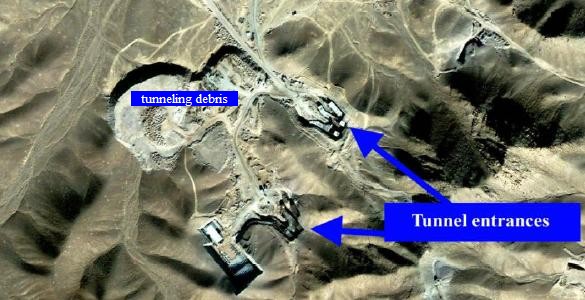
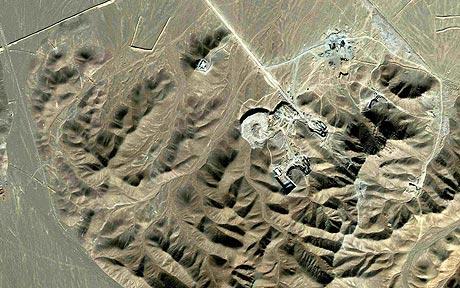
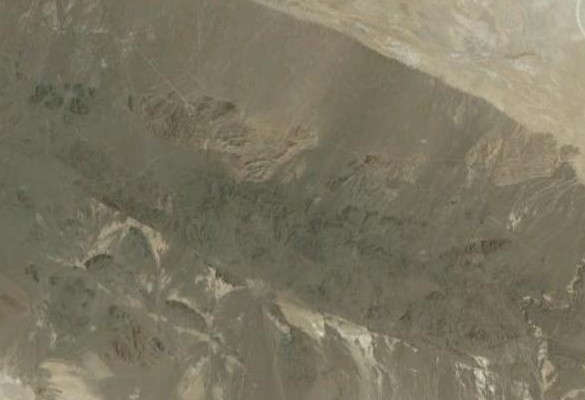
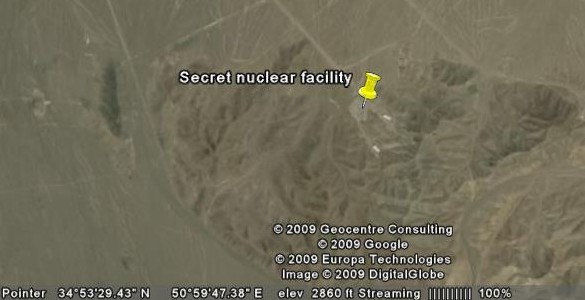
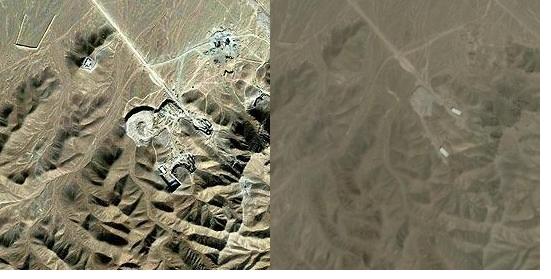
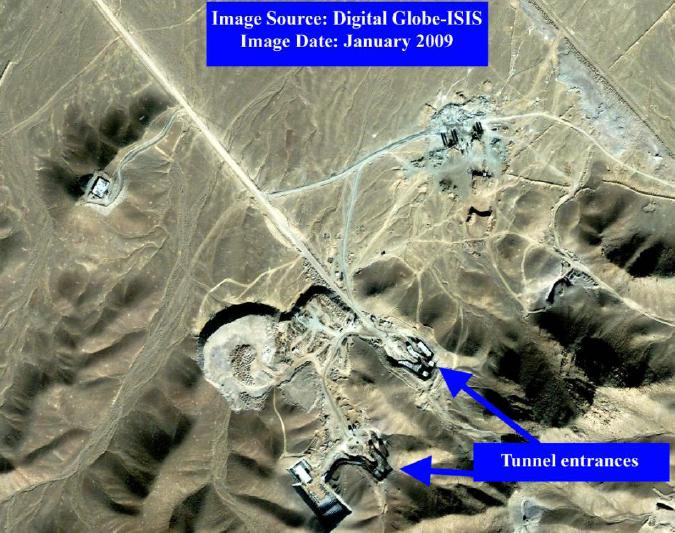
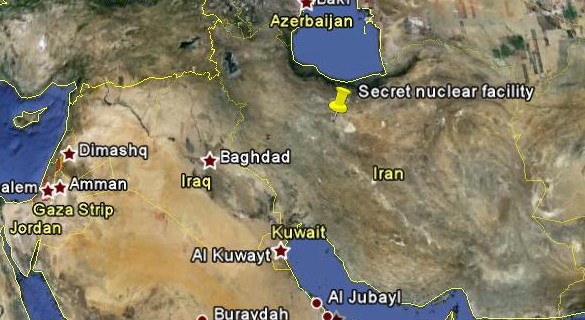
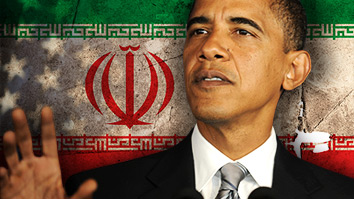 new WorldPublicOpinion.org poll of Iranians finds that six in 10 favor restoration of diplomatic relations between their country and the United States, a stance that is directly at odds with the position the Iranian government has held for three decades. A similar number favor direct talks.
new WorldPublicOpinion.org poll of Iranians finds that six in 10 favor restoration of diplomatic relations between their country and the United States, a stance that is directly at odds with the position the Iranian government has held for three decades. A similar number favor direct talks.